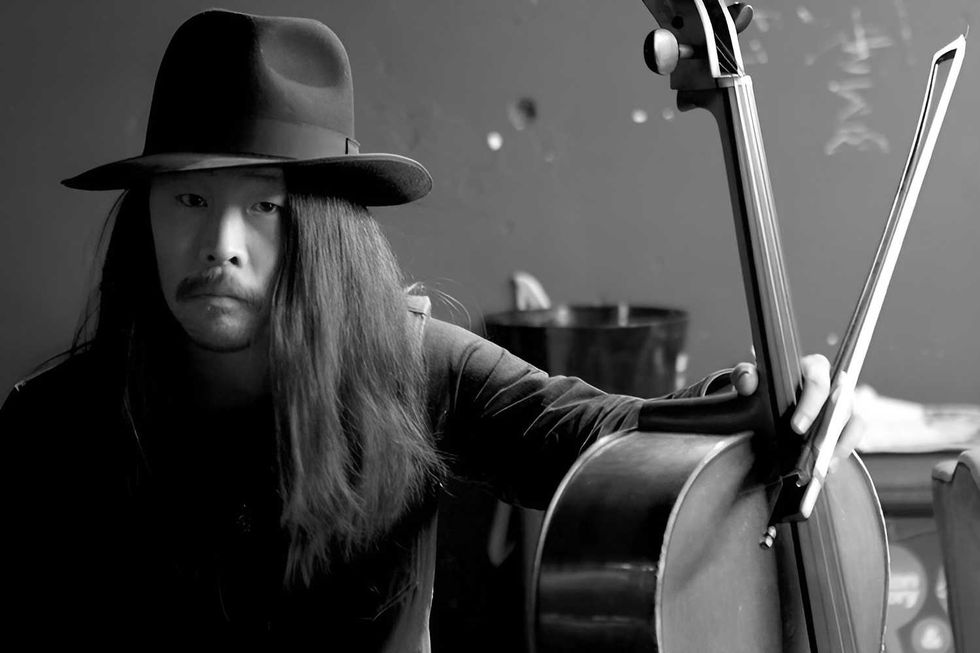Talk Opera To Me
The highlight of the season: A Coffin In Egypt pushes Houston Grand Opera in a bold, new direction
Whether it hails from ancient Egypt or Egypt, Texas, A Coffin in Egypt is anything but old news. Houston Grand Opera's 52nd world premiere, composed by Ricky Ian Gordon, based on the play by Horton Foote, directed by librettist Leonard Foglia, and starring Frederica von Stade, makes the season singular. It opens Friday night at 8 p.m. and runs through March 21 at Wortham Theater Center.
What's so unusual about A Coffin in Egypt?
It's an opera for one voice. We often expect opera to pit the intimacy of arias against the grandeur of ensembles. Granted, A Coffin in Egypt is not the only such work to focus on a single voice, sometimes called a monodrama. You might check out Opera Glass, a Stanford University sponsored informational website about opera, which includes a list of operas with six or fewer voices.
That list includes Arnold Schoenberg's 1924 Erwartung as well as HGO Studio co-founder Carlisle Floyd's Flower and Hawk, about the life of Eleanor of Aquitaine, and Letter to the World, about the life and works of Emily Dickinson, which was recorded by Susanne Mentzer.
Frederica Von Stade came out of retirement to sing the part of nonagenarian Myrtle Bledsoe. Many Houstonians may remember Von Stade last appearance in Jake Hegge's Dead Man Walking, which was to be her last operatic performance. Von Stade debuted at HGO as Mozart's Cherubino in 1973 and retired as Hegge's Mrs. de Rocher, a murderer's mother in 2010.
Here is Von Stade as Cherubino:
And here is HGO's farewell to Von Stage in 2010:
In 2014, however, Von Stade is all about Myrtle Bledsoe. In an interview with Luiz Gazzola on Opera Lively, she describes the drama of A Coffin in Egypt: "Fundamentally, it’s about a woman who is reflecting on her life. She had a very unhappy marriage to a man who from the beginning had a mistress, a mulatto mistress, and flaunted it. She was terribly embarrassed by it, and at one point couldn’t stand it, so she took her daughters to Europe, to live all over Europe.
"She was very beautiful as a young woman, and people fell in love with her in every continent . . . In the opera, everybody is dead when she is sitting on her porch reflecting upon all of this. She says — “I’m still poisoned by it.” It’s a study in her character and her reflection. This is what she saw, and it is filtered all through these beautiful negro spirituals that have soothed her."
Of course, who wouldn't come out of retirement for composer Ricky Ian Gordon? Gordon is as inspired by musical theater and cabaret as by opera. He's known for idiosyncratic treatments of Orpheus and Eurydice and for the successful operatic adaptation of John Steinbeck's The Grapes of Wrath.
Here's Audra McDonald performing Gordon's "Lullaby," a setting of a poem by James Agee:
Gordon's having a banner year, to say the least, with two operatic premiers. In addition to A Coffin in Egypt at HGO, Opera Theatre of Saint Louis will premiere 27, named for 27 rue de Fleurus, where, famously Gertrude Stein held court with the likes of Picasso and Hemingway, this Jume.
But who could forget Texas' own Horton Foote? You may know him but you don't know him. Apparently it isn't enough to win a Pulitzer, two Oscars, and a National Medal of Arts.
Most well known for his award-winning screenplays for the films To Kill A Mockingbird (1962) and Tender Mercies (1983), Foote's works are not as accessible as one might think. The production of any opera — monodrama or not — is an extraordinary expenditure of precious commodities — time and money.
It's heartening to see HGO lavish that attention on a writer who came a long way from Wharton, Texas.






